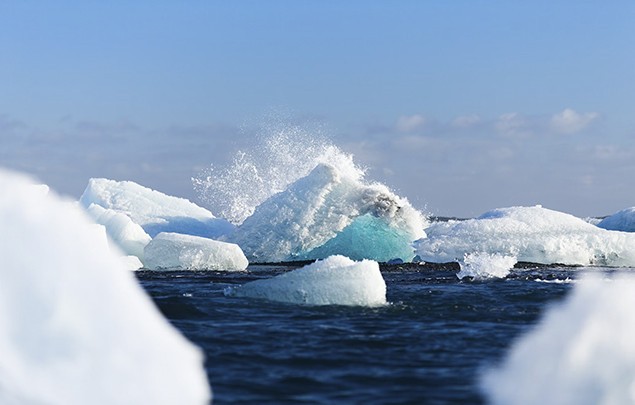Technology applied to the sustainability of the Arctic

Our climate situation and current sociopolitical circumstances have given the Arctic greater environmental, social, economic, and geostrategic importance, which brings with it an increasing need to protect our planet’s northernmost region. In this context, the Arctic International Technical Conference (AITC) was held at the end of April in Nuuk, Greenland. GMV attended this event, to participate in the workshop for the European ARCOS project that took place as part of the conference.
At this year’s edition of the AITC, experts, academics, and other stakeholders met to discuss the new initiatives designed to promote sustainable development of the Arctic regions, and especially Greenland, from a three-fold perspective: scientific, civil, and commercial. The schedule of presentations was focused on the technology being applied for monitoring, mapping, and precise navigation, to help conserve the sea, cryosphere, and land.
The purpose of the Arctic Observatory for Copernicus SEA Service (ARCOS) project is to develop an early warning system based on continuous monitoring of the Arctic region. This is a system that brings together satellite-based information, data from non-space sources, and products available from the Copernicus Marine Environment Monitoring Service (CMEMS) and Copernicus Climate Change Service (C3S).
GMV is a member of the ARCOS project’s consortium, and its Teledetection Services and Operating Platforms division is responsible for providing teledetection services, such as for tracking oil spills, marine litter, and ship locations; the geointelligence products based on satellite images; and the service demonstrations.
During the conference, GMV gave a progress report on the products it has contributed to the project. The last of the demonstrations scheduled for the project, led by GMV, was also presented during this workshop. During that demonstration, the members of the ARCOS advisory board were shown the latest version of the platform created as part of the project, including its functionalities and the products being made available there. The purpose of this was to assess the final status of the service and to identify any final improvements needed before the ARCOS project comes to an end, to help establish the roadmap that the service will follow afterward.
More about ARCOS:
The ARCOS project was initiated in 2020, with a duration of 34 months. It is part of the Horizon 2020 funding program (agreement no. 101004372), and its consortium includes participants from industry, institutions such as the EU Satellite Centre (SatCen), and academic institutions such as Politecnico di Milano (POLIMI).